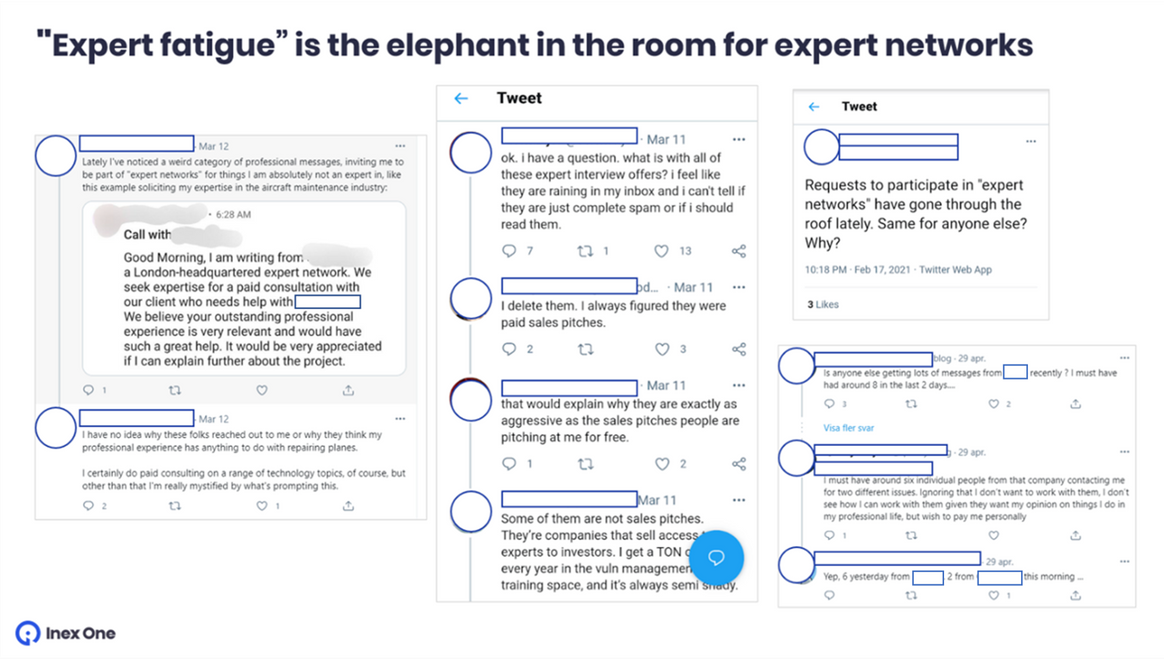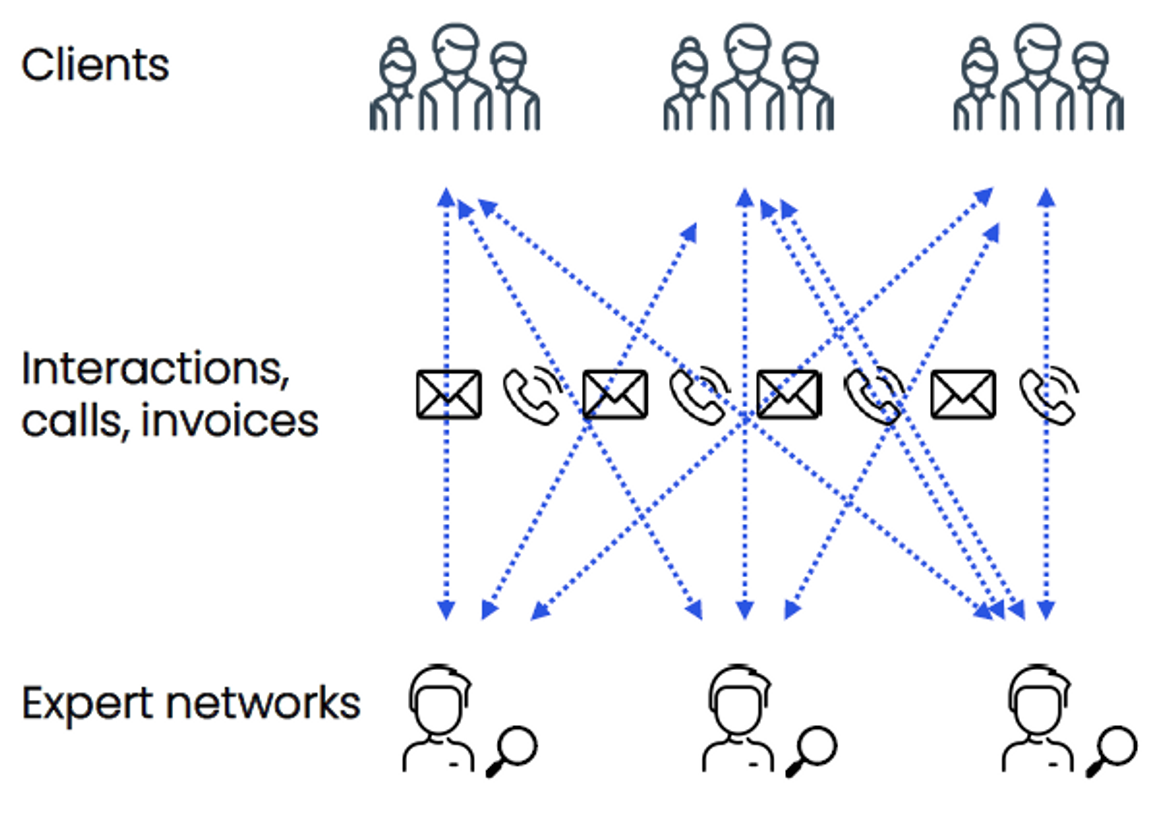27 May 2021
Part 2: The expert network industry is broken

The entry barriers to the expert network industry have eroded. As we saw in Part 1: The Bright Future of Expert Networks, online databases like LinkedIn, Xing and ResearchGate replaced the old "in-house rolodex". Today, the industry is booming - and fragmenting. In this second part, we look at the effects of this development.
Part 2: Complication
The expert network industry of today is suboptimized for user experience. This is unfortunate for clients, for experts, and for expert networks themselves. Let's dig in to these categories, one by one:
2.1. Clients: “it’s a love-hate relationship”
Most clients have an ambiguous relationship with their expert network providers. While acknowledging expert networks as important suppliers, clients tend to complain about the quality of experts, workflow hassle, and opaque pricing. In addition, consulting firms are getting concerned about some expert networks stepping on their turf.
Clients engage multiple expert networks to cast a wider net. This comes with added admin and coordination costs. Getting lots of emails in reply is a bummer, but even more so...
2.2. Expert fatigue is real
Without the experts, there would be no expert network industry. Experts are the imperative of our industry, but they are typically taken for granted. "Expert fatigue” is the elephant in the room for the expert network industry. Experts who feel spammed by expert networks risk going off the market altogether.
Experts get overloaded by requests in two forms:
Expert networks probing them about too many projects, many of which are not relevant.
Too many different expert networks probing them about projects, each with a new set of T&Cs, trainings, and payment practices.

Recent tweets from experts who felt spammed by expert networks
At Inex One, we think of this as a user experience ("UX") problem. An expert is a user who is willing and able to exchange knowledge for compensation. Unfortunately, she often gets put off by the hurdles and inconveniences involved.
The ideal expert UX is to be thoughtfully engaged by a peer at an expert network focused on your sector, building a relationship and trust over time. The mechanics of the transaction (T&Cs, trainings, conferencing and payments) should work smoothly and as expected. This goes well with the fact that...
2.3. Expert networks can do better for their employees
Expert networks traditionally recruit from the same talent pools as consulting firms, but do they offer the same career opportunities? When reading the expert network Glassdoor reviews, we find a few recurring themes:

Common feedback from expert network employees
There is immense potential here. Expert networks employ great talent, providing an interesting service to interesting clients. But how do we solve the pain points? Can we provide more meaningful work, an environment for employees to thrive, and improve future career prospects? What is the ideal UX for an ambitious expert network employee?
Improving the UX for expert network employees
Let's consider the work of an expert network associate. I've been one myself, and found it quite inefficient and frustrating at times. You have ambitious sales targets, but how to reach them is a bit random, not entirely in your hands. New projects come daily over email, but you cannot prioritize your time between them because:
You do not know how many other expert networks are invited to the same project, and if you got it first - or last.
The client can go schedule all their calls with another network, without you hearing about it.
Worst of all: you can be delivering on a project, only to learn that the client stopped working on it a week ago (but didn't bother to tell you)!

Survival of the fittest
The transactional nature of modern expert networks is bad for clients, for experts, and for employees at the expert network firms. The firms themselves are doing well, but only for as long as the industry keeps growing. Should the industry enter a mature life cycle stage, we might see a race to the bottom also on prices and profits. All of this feels weird for an industry that is so valuable to its clients.
What is the end-game for expert networks? Is there a resilient steady-state for the industry? And if so, how do we get there?
We answer this and more in our next post: Part 3: How expert networks win in the 2020's.
The future of professional learning
Inex One collaborates with some of the best expert networks in the world, building tech for an efficient industry.
Do you want to be part of shaping the bright future of the expert network industry? Check out our open positions.
Do you want access to the best expert networks? Sign up as a client here.
Icons made by Freepik and Pixel perfect from Flaticon.